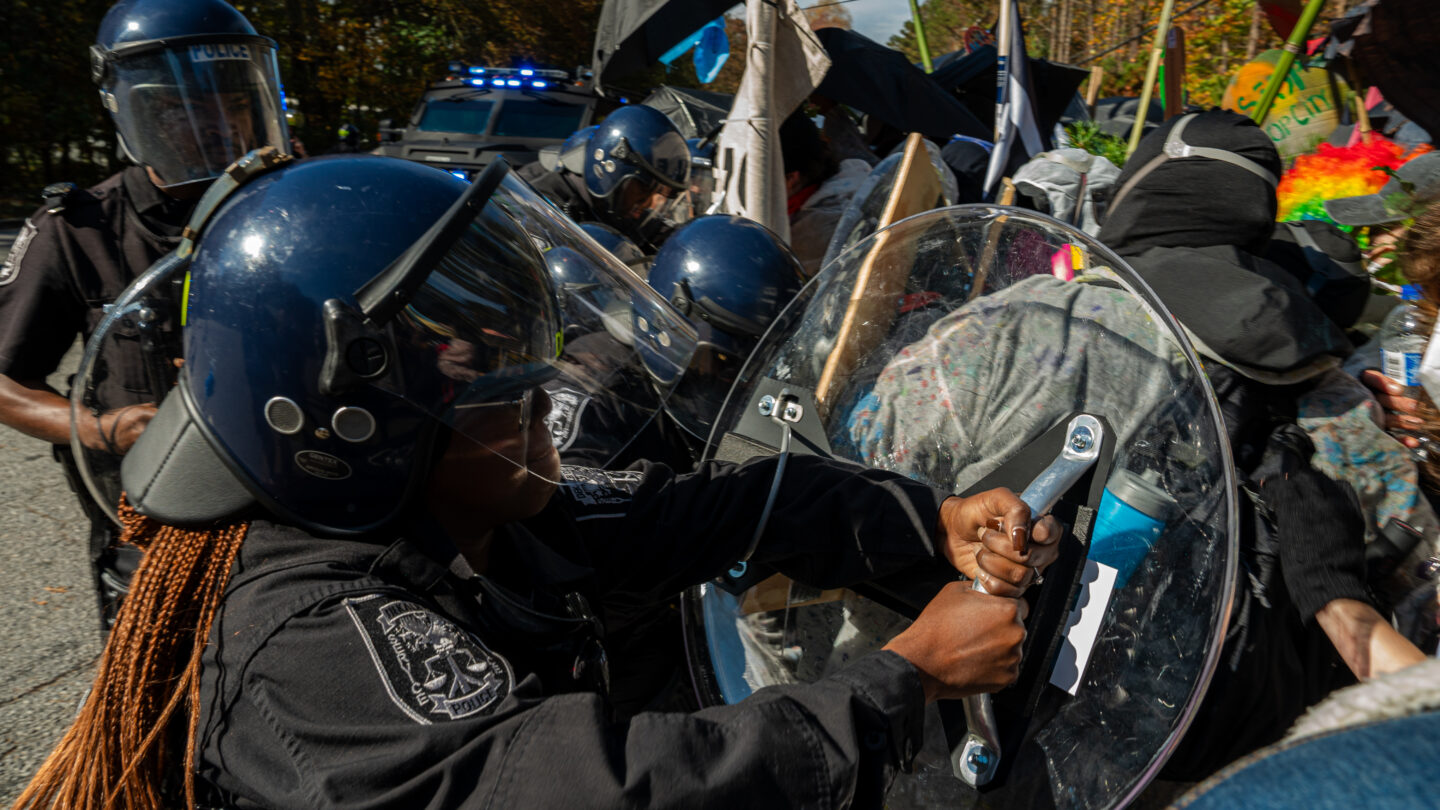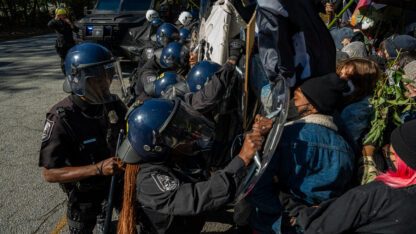Georgia prosecutors on Tuesday dropped all 15 counts of money laundering that were levied against three Atlanta organizers accused of misusing a bail fund to aid violent protests against the city’s proposed police and fire training center.
Atlanta Solidarity Fund leaders Marlon Kautz, Adele MacLean and Savannah Patterson still face racketeering charges, along with 58 others who were indicted last year following a yearslong investigation into the “Stop Cop City” movement. Prosecutors have portrayed the decentralized movement as being led by “militant anarchists” hell-bent on radicalizing supporters and halting the construction of the facility by any means necessary, including arson.
At the center of the case is the Atlanta Solidarity Fund, which has provided bail money and helped find attorneys for arrested protesters. Prosecutors said the three defendants funneled money that was supposed to be for charitable causes and instead used it to reimburse protesters who spent months camping in the South River Forest, near the site of the facility in DeKalb County, just outside Atlanta.
Transactions that prompted the 15 counts of money laundering included $93.04 for “camping supplies” and $12.52 for “forest kitchen materials,” according to the indictment.
But just as a motions hearing was about to start Tuesday, Deputy Attorney General John Fowler told Fulton County Judge Kimberly Esmond Adams that he would be filing paperwork to dismiss the 15 counts. A spokesperson for Georgia Attorney General Chris Carr did not say why the money laundering charges were dropped but emphasized that the racketeering charges remain.
Kristen Novay, the attorney for Patterson, applauded the decision.
“The entire indictment is defective, but with those particular counts, I think it is a wise move for a seasoned prosecutor to say, ‘This isn’t worth it,’” Novay told The Associated Press. “Sometimes the hardest call as a prosecutor is to not go for something.”
Demonstrators and civil rights organizations have condemned the racketeering indictment and accused Carr, a Republican, of levying heavy-handed charges to try to silence a movement that has galvanized environmentalists and anti-police protesters across the country. Opponents say the 85-acre, $110-million facility will worsen police militarization and harm the environment in a poor, majority-Black neighborhood.
Despite various attacks against the site and contractors’ equipment over the past couple of years, construction on the training center has continued, and officials say they are planning to hold a ribbon-cutting ceremony in December. Supporters say the city must replace outdated facilities and that it is key to better train officers to avoid improper use of force.
Meanwhile, tens of thousands of signed petitions to let voters weigh in on the project have spent the past 12 months sitting untouched in boxes as officials await a court ruling on whether nonresidents were wrongly allowed to collect signatures. City officials are hoping the 11th U.S. Circuit Court of Appeals will kill the petition drive either because it is illegal under state law or because organizers missed their original deadline. The court, which heard arguments in December, has yet to issue its ruling.
Outrage over the stalled referendum continued Monday, when dozens of protesters testified in front of the Atlanta City Council and then hurled hundreds of pingpong balls throughout the chamber as they chanted, “You have dropped the ball.”
Efforts to prosecute those responsible for numerous violent “Stop Cop City” protests have hit multiple stumbling blocks. Last year, DeKalb County District Attorney Sherry Boston, a Democrat, announced she would withdraw from criminal cases tied to the protests, citing disagreements with Carr. And in July, Judge Esmond Adams castigated prosecutors for committing “gross negligence” for mishandling confidential email conversations that Kautz, MacLean and Patterson had with their attorneys, though Esmond Adams denied defense attorneys’ motion to dismiss the case on those grounds.









